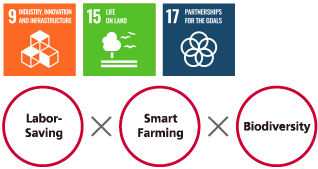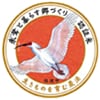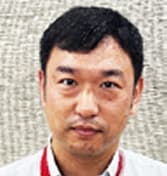CASE of Re-connect X 03

-
Striving for Sustainable Terraced
Paddy Field Farming that Is Friendly
to Both People and Animals
Shortage of Rice Farmers in Japan
In mountainous Japan, rice cultivation in terraced rice fields on sloping terrain has been handed down from generation to generation. The shortage of rice farmers has long been a social concern due to the declining birthrate and aging population, and this trend has become more pronounced in mountainous regions and islands where it is difficult to secure large areas of farmland. For example, Sado City in Niigata Prefecture has been promoting rice cultivation with reduced use of pesticides in order to coexist with the Japanese crested ibis, a special natural treasure, and was recognized as Japan’s first Globally Important Agricultural Heritage Systems (GIAHS) in 2011. However, the impact of the farmer shortage is steadily creeping into this beautiful remote island, and the city is trying to find a way forward by introducing smart agriculture using robots, AI, IoT, and other technologies.

Agricultural ICT Solutions Shared in the Community
NTT Communications is participating in the World Agricultural Heritage and Toki no Shima (Sado) Smart Agriculture Consortium, which is focused on establishing a sustainable farming method for terraced rice fields that is friendly to both people and living creatures in Sado City, Niigata Prefecture. Ensuring that Sado can remain a habitat-friendly environment for crested ibises will require pesticide-reduced, pesticide-free, and chemical-free cultivation in the terraced rice fields that are shape the original landscape of the island. Sado has strived to build a local brand and increase profits by, for example, establishing a program called Creating a Township Where People Can Live with Crested Ibises for certifying safe and tasty Sado rice. Maintaining agricultural practices that do not rely on pesticides in the terraced rice paddies spread out on mountain slopes requires a level of manual labor that is too heavy for elderly people, such as managing rice banks and cutting grass. As part of the above consortium, NTT Communications participated in a pilot project to introduce agricultural ICT solutions such as drones, paddy field weeding robots, and advanced water management systems to terraced rice fields. The two-year project has been underway in cooperation with government agencies and local agricultural corporations since fiscal 2022 and has been selected as part of the FY2022 Smart Agriculture Production Area Model Demonstration by the Ministry of Agriculture, Forestry and Fisheries. Its purpose is to determine the value of agricultural ICT solutions that significantly contribute to automation and labor-saving in agricultural work while exploring the possibility of sharing the cost and benefits of these new interventions with the local community. We are also examining business models that take into account environmental conservation and yield maintenance, as well as the improvement of the sales price of rice by certifying pesticide-free and chemicalfree cultivation. We will continue to our research, development, and practice of smart agriculture, starting with Sado Island, to address the issues of terraced rice field farmers nationwide.

Certification mark for Creating a Township Where People Can Live with Crested Ibises
Working with Local Communities to Revitalize Japanese Agriculture

-
Mitsuru Usui
Senior Manager
Niigata Branch,
DOCOMO Business Solutions, Inc.We will help revitalize agriculture by involving students and other nextgeneration leaders, deepening our engagement in Sado and other regions and working with local communities to refine our agricultural ICT solutions.

-
Yuki Yumoto
Manager
Assistant Section Chief
Niigata Branch,
DOCOMO Business Solutions, Inc.Given the remaining technical issues with ICT solutions such as weeding robots, we will continue our efforts to help solve local problems by mobilizing the cooperation and wisdom of numerous people.

-
Shunsuke Hatano
Niigata Branch,
DOCOMO Business Solutions, Inc.We believe that smart agriculture can create new value to address the aging of farmers and the shortage of successors. We will therefore accumulate and analyze data to expand the possibilities of agricultural businesses.
Note: The content of this article is as of December 2023

 JP
JP




